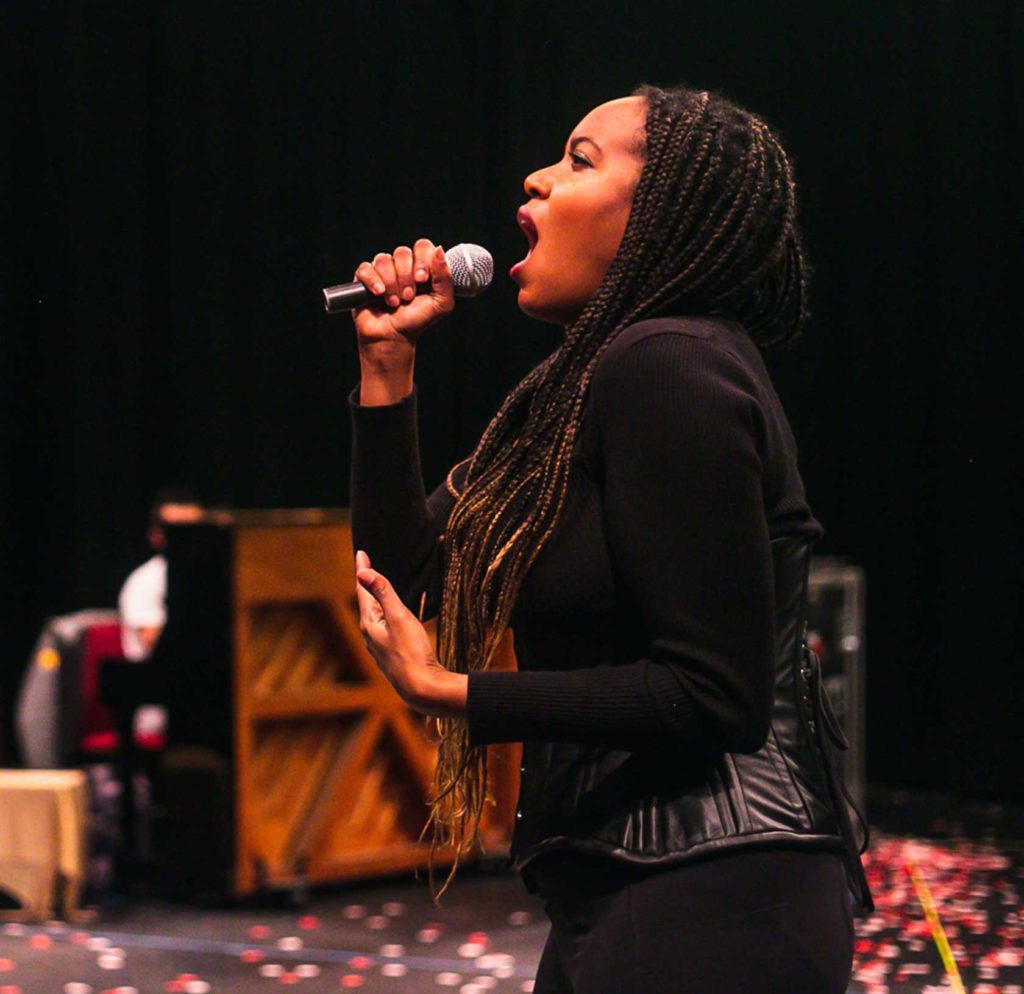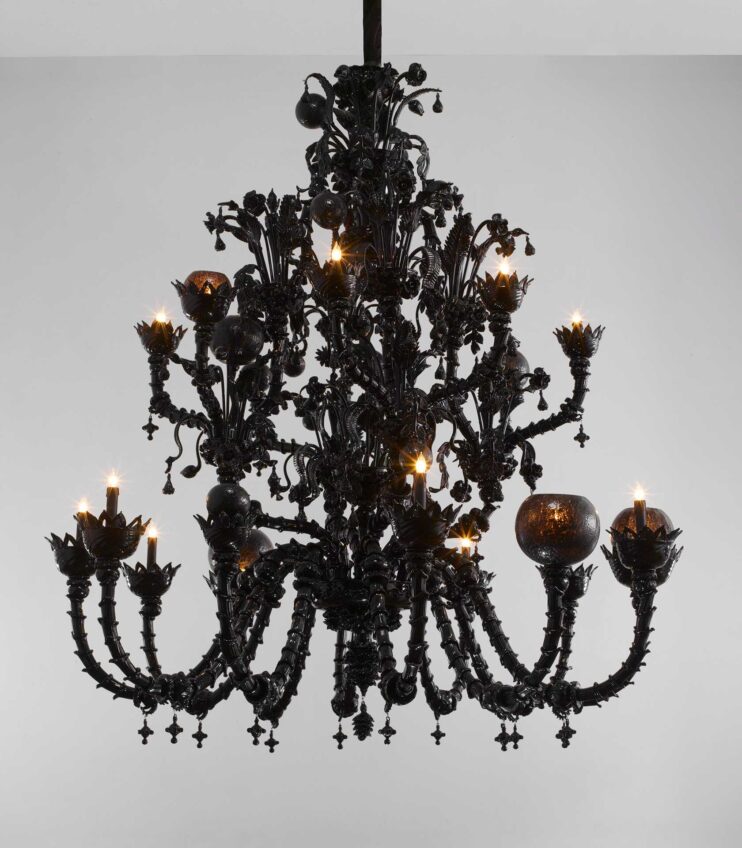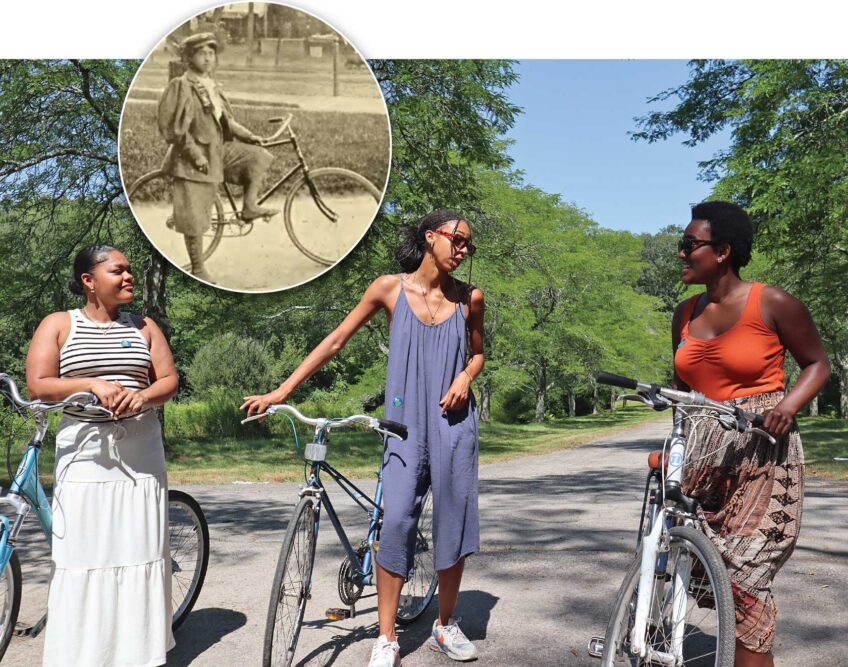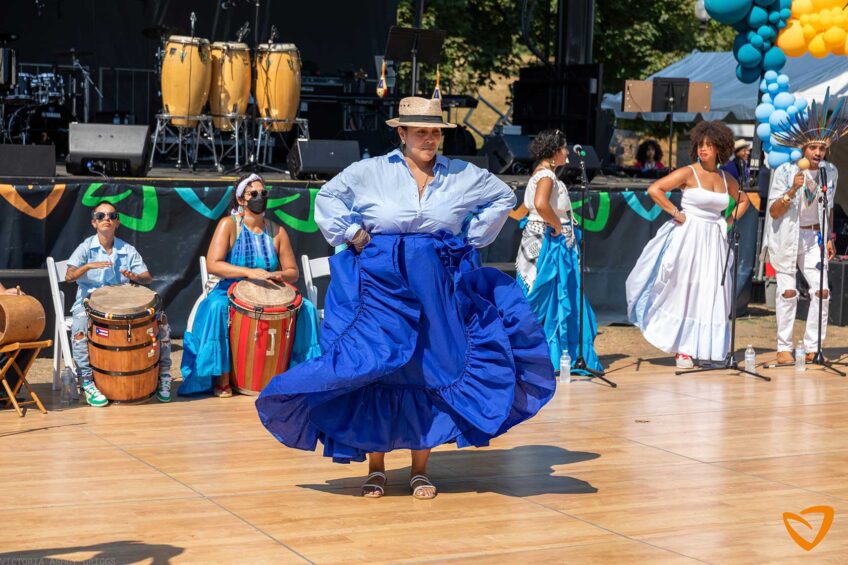Lady Macbeth’s power playlist
Whitney White debuts first of five Shakespearean adaptations at A.R.T.

When Whitney White first encountered Shakespeare’s Lady Macbeth, she fell in love. Here was a character who was ambitious, decisive and powerful, a relatable contemporary woman. This fascination with Shakespeare’s female characters has led to “Macbeth in Stride,” running at the American Repertory Theater Oct. 23 through Nov. 14.
The musical adaptation is the first of five performances A.R.T. has commissioned from White. In White’s vision of the piece, Lady Macbeth is a Black woman backed by a live band and a powerful repertoire of original music. The series began as a way of celebrating these characters but has led to a deeper societal mission as White probed the Shakespearean texts.

Phoenix Best, Kira Helper, and Reggie D. White in rehearsal for Macbeth In Stride.
PHOTO: Lauren Miller
“I started noticing that with all of my favorite Shakespearean women — Cleopatra, Juliet, Ophelia, Lady Macbeth — you notice a theme, and it’s suicide,” says White. “I looked at society around me that we all live in and saw that narrative to be a persistent one, and I want to know why.”
Each of the five productions will have its own original soundtrack channeling the rhythm of the heroine. Lady Macbeth is rock-and-roll. She is a force of nature that can only be articulated through rigorous guitar riffs and powerful beats. White likens Macbeth and Lady Macbeth to an Ike-and-Tina-Turner-style power couple, two forces that are hurdling at full speed towards tragedy.
Not only is music a way to bring a unique feeling to each character, but White sees it also as a way to welcome populations of all kinds into the Shakespearean stage. “Music is the great equalizer,” she says. “No matter who you are, what ethnic group you come from, what religion you practice, where you’re from, music can unite people and focus us on one story.”

Kira Helper, Charlie Thurston, Reggie D. White, and Whitney White in rehearsal for Macbeth In Stride. PHOTO: Lauren Miller
The music in “Macbeth in Stride” draws on White’s upbringing in Black neighborhoods of Chicago. Lady Macbeth’s lament is a prayer, and White interprets it as she might pray — in gospel. When Lady Macbeth is recast in the experience that White knows, that of a Black woman, the story further probes the way narratives like hers are used as a tool of oppression against women.
The performance also features a predominantly Black cast. A “Black Out Night,” a safe space for Black-identifying audience members to attend, will be held on Oct. 29. “I think it’s a beautiful thing to be able to make work for the community that I came from,” says White. “The music is very ‘us’ — it’s literally inspired by soul, gospel and rock.”







